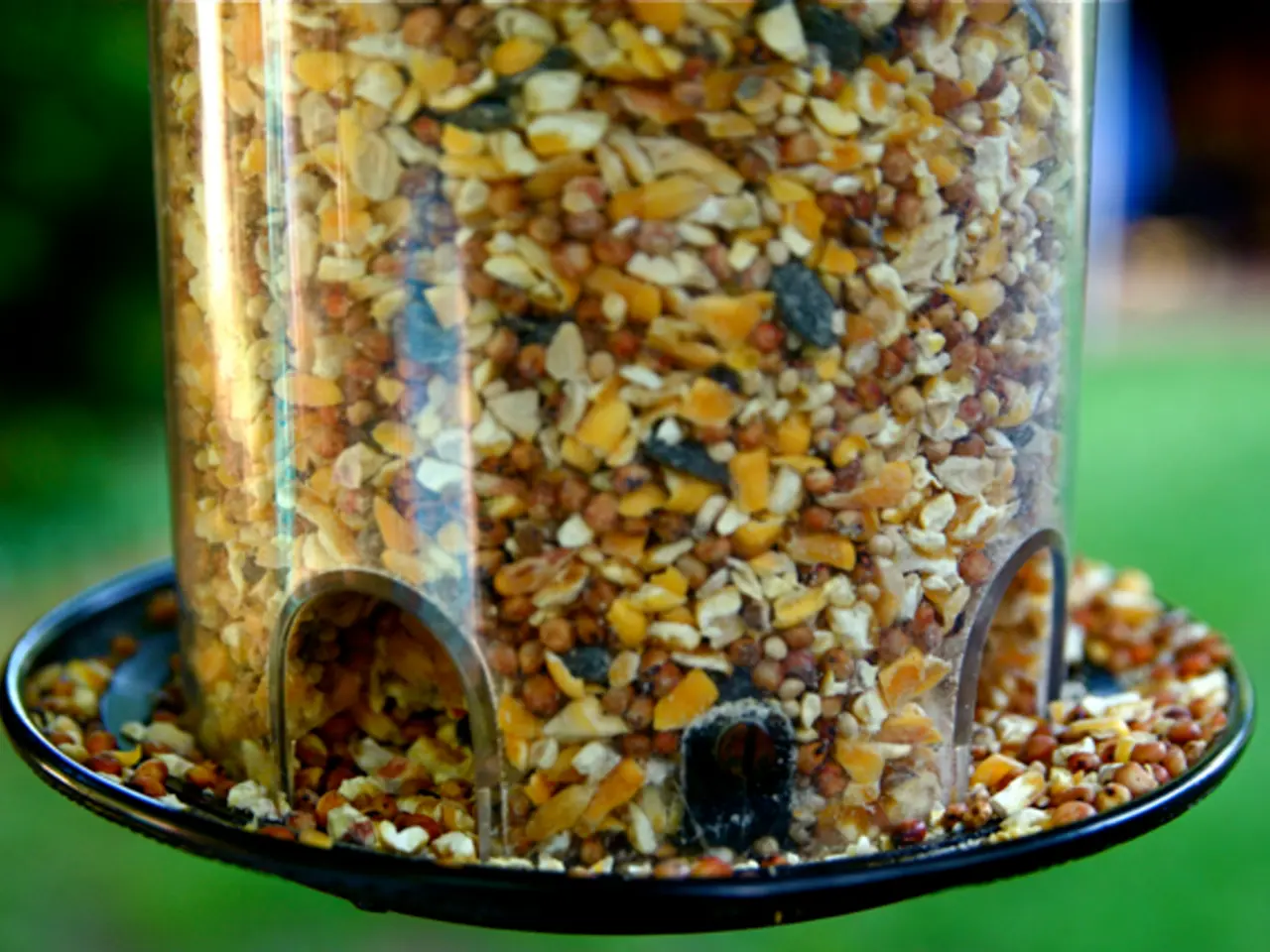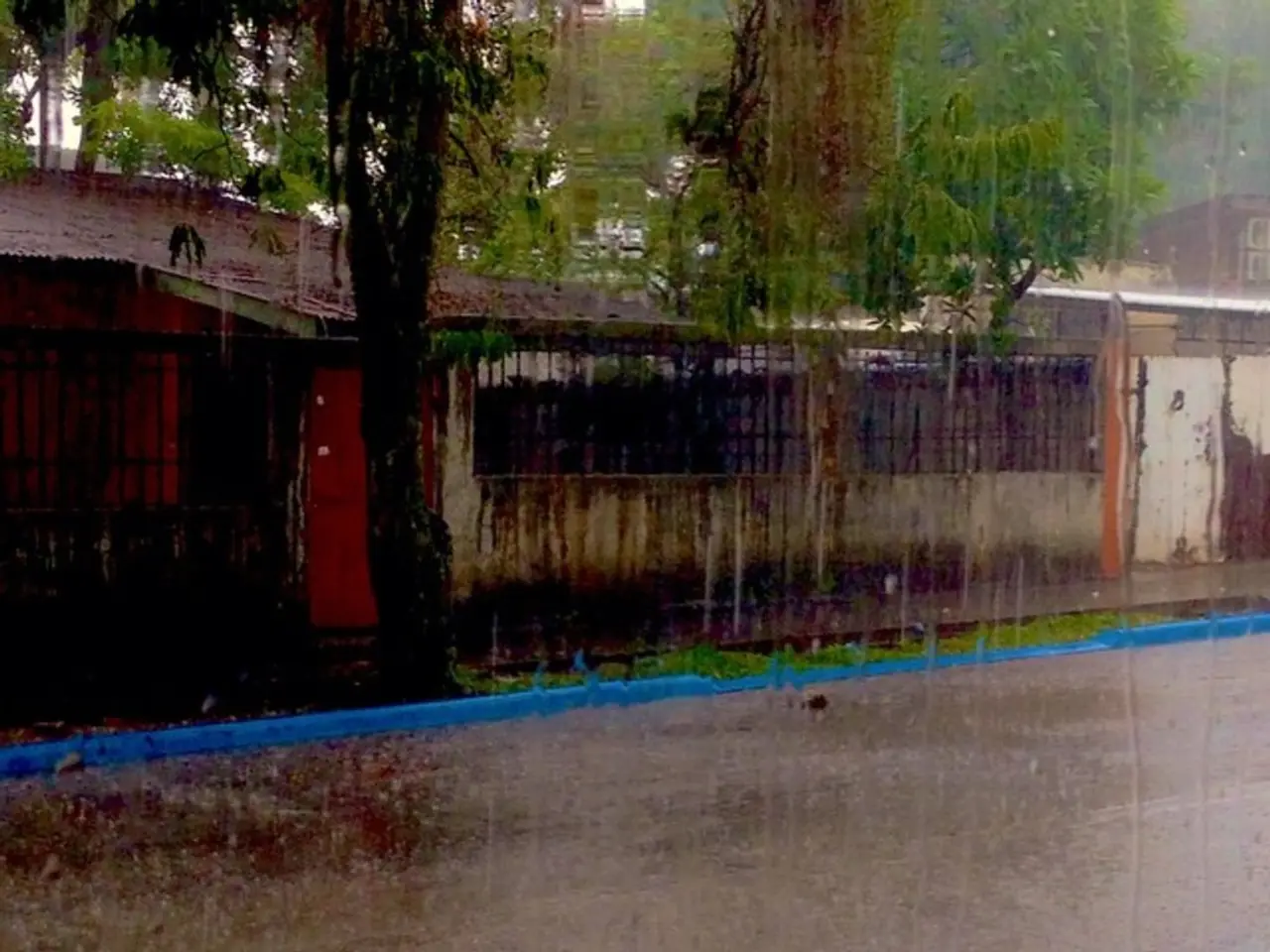Crops of Cereal Under Threat - Farmers Suffer Anxiety
Heavy Rain Takes a Toll on Baden-Württemberg's Grain and Rapeseed Harvests
Heavy rainfall in the German state of Baden-Württemberg is causing concern for farmers, as it negatively impacts the quality and market value of the grain and rapeseed harvests. According to the Ministry of Agriculture in Stuttgart, high humidity and warmth can promote fungal diseases that severely impact the harvest quality, particularly in early-harvesting regions that were previously very dry.
Excess rain can lead to a decrease in the protein content of grain, a crucial factor in processing, especially for bread grains. This moisture can cause sprouting, molding, and reduced storage stability, deteriorating the quality of the crops.
The excess rain also fosters the development and spread of fungal diseases such as Fusarium head blight and other molds, which lead to yield losses and contamination. Although specific data for Baden-Württemberg in 2025 is not detailed, such effects are well-documented agronomically and regionally relevant given the increase in extreme weather events reported across Southern Germany.
The impact of heavy rain varies geographically within Baden-Württemberg. Areas prone to waterlogging and poor drainage, or those exposed to intense storms, experience higher damage risk due to saturated soils and fungal pressures. These localized extreme events highlight vulnerabilities in the agricultural landscapes where both infrastructure and crop protection measures may prove insufficient.
The Baden-Württemberg Association of Farmers has expressed their concern, stating that the harvest needs sun, not more rain. Early signs, known as "tillers," are already visible, indicating a loss of baking quality and market value. Bernhard Bolkart, the President of the Association, warned that what is still standing in the fields is at acute risk of quality loss.
However, the ministry has reported that higher regions with sufficient rainfall, such as the Swabian Alb or the southeastern part of the state with alpine influence, are less affected. Much of the grain and rapeseed harvest in higher regions like the Baar, Hegau, or Lake Constance area remains unharvested, according to the Association.
In summary, heavy rainfall in Baden-Württemberg negatively affects grain and rapeseed harvests by reducing crop quality via moisture-induced losses and promoting fungal diseases. The degree of impact is influenced by regional weather severity and soil conditions within the state. While direct 2025 harvest statistics for grain and rapeseed are not provided, increasing extreme rainfall events are a growing concern for agricultural productivity and require continued adaptive management in Baden-Württemberg.
The heavy rainfall currently affecting Baden-Württemberg is causing concern for farmers, as it can influence the quality and market value of their grain and rapeseed harvests due to potential disease growth in humid conditions (Region, weather). The excess moisture may lead to a decrease in the protein content of grain and increase the risk of crop contamination due to fungal diseases like Fusarium head blight (Region, weather).








